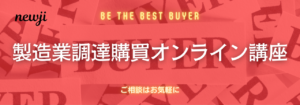- お役立ち記事
- Mastering Process Control in Japanese Manufacturing: Boosting Efficiency and Quality

Mastering Process Control in Japanese Manufacturing: Boosting Efficiency and Quality

目次
Introduction to Process Control in Japanese Manufacturing
Mastering process control in Japanese manufacturing has become an essential aspect for global businesses aiming to enhance efficiency and quality in their operations.
Japan’s attention to detail, precision engineering, and innovative spirit set a high bar that many industries strive to replicate.
This article provides a comprehensive guide that draws on decades of experience in procurement, purchasing, and production management, aimed at empowering you with the knowledge required for successful collaboration with Japanese suppliers.
Understanding Process Control: A Japanese Perspective
The Philosophy of Kaizen
At the heart of Japanese manufacturing lies the philosophy of Kaizen, which emphasizes continuous improvement.
This methodology focuses on making small, incremental changes in processes to enhance efficiency and eliminate waste.
By adopting Kaizen, businesses not only refine their manufacturing processes but also foster a culture of constant innovation and teamwork.
Poka-Yoke: Error Prevention Techniques
The Japanese approach to process control is incomplete without mentioning Poka-Yoke, a technique designed to eliminate human errors in the production process.
Poka-Yoke tools and methods are integrated into the workflow to ensure that potential mistakes are caught early or circumvented altogether.
This not only boosts efficiency but also guarantees high standards of quality.
Lean Manufacturing
Lean manufacturing, another cornerstone of Japanese process control, aims to minimize waste without sacrificing productivity.
Components such as Just-In-Time inventory management, standardized work, and efficient supply chain logistics are all elements that contribute to an optimized production process.
Companies practicing lean manufacturing can significantly reduce costs and lead times, providing a competitive edge in the market.
Advantages of Japanese Process Control Methods
High-Quality Standards
One of the most notable advantages of Japanese process control methods is the achievement of exceptionally high-quality standards.
By prioritizing continuous improvement and error prevention, Japanese manufacturers ensure that their products meet or exceed international quality expectations.
Improved Efficiency
Japanese techniques help streamline operations, cut down unnecessary steps, and zero in on value-adding activities.
This leads to enhanced efficiency, quicker turnaround times, and reduced operational costs.
Robust Supplier Relationships
Engaging with Japanese suppliers often leads to robust, long-term relationships built on mutual respect and cooperation.
This stable partnership can be an invaluable asset for any business, offering reliability and consistency in supply.
Challenges and Disadvantages to Be Aware Of
High Initial Costs
Implementing Japanese process control methods can involve substantial initial investments in training, new technology, and reengineering of processes.
Small to medium-sized enterprises may find these costs prohibitive.
Rigorous Standards and Compliance
Adhering to the rigorous standards associated with Japanese manufacturing can be challenging for companies unaccustomed to such stringent requirements.
The high level of discipline required may also pose a cultural adjustment for some organizations.
Long Implementation Periods
Introducing these advanced methodologies into existing manufacturing workflows often takes time.
The transition period may lead to temporary disruptions or inefficiencies before the desired improvements are fully realized.
Effective Supplier Negotiation Techniques
Understanding Supplier Priorities
To negotiate effectively with Japanese suppliers, it’s crucial to understand their priorities which often include long-term relationships, quality, and reliability over short-term gains.
Communication is Key
Effective communication, especially understanding the nuances of Japanese business etiquette, can significantly impact the negotiation outcomes.
Being respectful, patient, and clear about your expectations can lead to more productive discussions.
Mutual Benefits
Emphasize the benefits for both parties during negotiations, ensuring that your supplier sees value in the partnership.
Demonstrating how both entities can prosper will likely lead to more favorable terms for all involved.
Market Conditions Affecting Japanese Manufacturing
Economic Stability
Japan’s stable and mature economy provides a solid foundation for its manufacturing sector.
However, companies must remain vigilant about broader economic indicators and global market conditions that could affect supply chains.
Technological Advancements
The continuous technological advancements in Japan set it apart but also require businesses to stay updated with the latest innovations and trends.
Embracing these technologies can provide a competitive advantage.
Global Trade Policies
Changes in global trade policies can impact the cost and availability of Japanese-manufactured goods.
Companies must stay informed about tariffs, trade agreements, and regulations that may affect their operations.
Best Practices for Leveraging Japanese Manufacturing Expertise
Invest in Training and Development
To fully leverage the expertise of Japanese manufacturing, businesses should invest in training and development programs.
Understanding methodologies like Kaizen, Lean, and Poka-Yoke is essential for seamless integration and maximum benefit.
Collaborative Planning
Engage in collaborative planning sessions with your Japanese suppliers to align goals, expectations, and processes.
This will foster a sense of partnership and ensure everyone is working towards the same objectives.
Utilize Data and Analytics
Incorporate robust data analytics into your process control practices.
Utilizing real-time data allows for better monitoring, quicker decision-making, and more precise improvements.
Conclusion: Elevate Your Business with Japanese Process Control
Incorporating Japanese process control methods can be transformative, driving unprecedented levels of efficiency and quality within your manufacturing operations.
While the initial investment and commitment required can be significant, the long-term benefits make it a worthwhile pursuit.
By understanding and implementing the principles of Kaizen, Lean manufacturing, and Poka-Yoke, businesses can achieve a competitive edge in the global marketplace.
Furthermore, fostering strong relationships with Japanese suppliers through effective negotiation techniques and collaborative efforts will ensure sustainable success and mutual growth.
Mastering process control in Japanese manufacturing is more than just a tactical move; it is a strategic decision that promises continuous improvement, high quality, and operational excellence.







